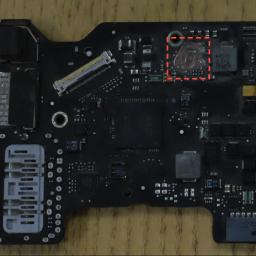
While the initial disclosures by Edward Snowden revealed how US authorities are conducting mass surveillance on the world's communications, further reporting by the Guardian newspaper uncovered that UK intelligence services were just as involved in this global spying apparatus. Faced with the prospect of further public scrutiny and accountability, the UK Government gave the Guardian newspaper an ultimatum: hand over the classified documents or destroy them. The Guardian decided that having the documents destroyed was the best option.
That's the beginning of the story, not the end of it, and it gets more troubling as you read on. Have a look at this article over at Privacy International [ed. note: an oxymoron if there ever were one] and find out that the UK's security services had an unnatural interest in keyboards and certain components of modern, mobile telephone technology.
Any questions? Just call.

Smart watches are evolving. After a somewhat inauspicious start and some missteps, manufacturers and designers are getting a better handle on what the market wants. Or what
I want, anyway.
Have a look at this new wristwatch from a company called Kairos . The Verge is reviewing it, and while it's not on the market yet, the combination of classic, mechanical wristwatch with a smart screen overlay looks phenomenal. The Verge points out Kairos is a start-up. Can they succeed where the big guns have failed?
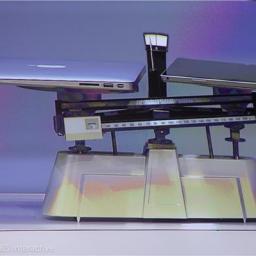
Steven J. Vaughan-Nichols has just published his review of the new Surface Pro 3 tablet by Microsoft. It's about an 800 word article, but it can be summed up with one word: "Meh." SJVN concludes, "
Too little hardware, too late, for too much money . " From the article:
Microsoft would argue they're not going after the low-end market. Microsoft's avowed target audience are the people today who buy a MacBook Air and the iPad. Really? Microsoft thinks that the Surface Pro 3 is going to persuade the Apple faithful to move to Windows 8.1? Come on! If there's any tech audience that's more faithful to their brand than Apple true-believers, I don't know who they are - and I spend most of my time hanging out with the Linux crew. For that matter, it seems to me that Microsoft isn't that clear on their target audience. Microsoft Corporate Vice President of Surface Computing Panos Panay told Mary Jo Foley that they're still calling the Surface Pro 3 a tablet even though "tablets have not landed" and not really hitting the productivity sweet spot.
So what's the deal? Any Surface Pros in your future? Does Microsoft have a chance? Or is this just one more data point in the graph that shows
Microsoft has jumped the shark ? Or heck, is the next version of the Surface Pro going to be the one that sweeps consumers off their feet? Grab your ipads and let us know ...
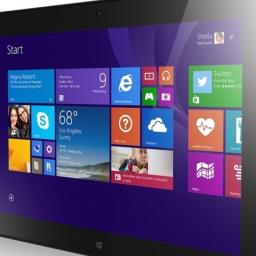
It was only a year or two ago when every journalist on earth suddenly went into fits, calling it the new age of tablet/mobile computing and assuring us the desktop would soon be a niche industry for has-beens and old fashioned losers. Lenovo would beg to differ. In fact,
they've sold 55 million computers in the year ending March 2014 . They also sold 50 million smartphones and 9 million tablets, so there's no doubt mobile computing is increasingly going to take a huge chunk of the market. From the article:
Looking at the numbers by product line, Lenovo's worldwide laptop PC business increased in the fourth fiscal quarter by 16 percent to $4.8bn, accounting for 51 percent of the company's overall sales. Despite the general market declining, its desktop PC sales for the same period increased 14 percent to $2.7bn, or 29 percent of the company's overall sales worldwide. The company's sales of smartphones and digital home products jumped to $1.3bn, or 13 percent of the company's overall sales, and Lenovo said its worldwide smartphone shipments grew 59.4 percent in the fourth quarter.
But the world's largest PC maker would like you to know the age of the desktop computer has absolutely not come to an end.
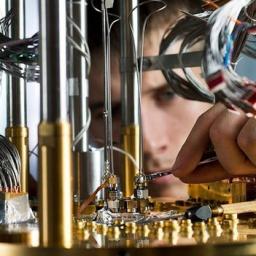
Interesting article at the BBC about improvements in quantum computing, plus a Canadian company by the name of D-Wave, who
claims to have built working models of quantum computers .
Quantum computing exploits the weird physics of quantum mechanics, which takes hold at tiny (atomic or sub-atomic) scales. Computers that tap the quantum realm could carry out complex calculations much faster than their conventional - or classical - counterparts. While the basic units of information in classical computers are called "bits" and are stored as a string of 1s and 0s, their equivalents in a quantum system - qubits - can be both 1s and 0s at the same time. ... Scientists have struggled to entangle more than a handful of qubits, and to maintain them in their quantum state. Lab devices suffer from drop-out, or decoherence, where the qubits lose their ambiguity and become straightforward 1s and 0s. This has ensured that quantum computers remain confined to the lab - proofs of principle capable of solving only elementary problems.
Sounds interesting, as long as I can theme it. </joke>
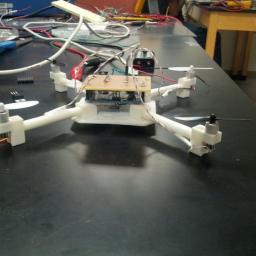
If I were a despotic ruler, I'd have a fleet of computer-controlled flying death machines I could dispatch at a moment's notice to strike down my opponents. Well, I might not be a despot, but I can still have the flying machines. Check out Awesome Awesomeness, who
created his own (her own?) Quadracopter out of an Arduino board and less than $60 in components. A couple of the parts were created on a 3D printer.
All they're missing is the death-laser and, to build out the fleet, about a million more of them. Now I've just got to practice my
evil, madman laugh .
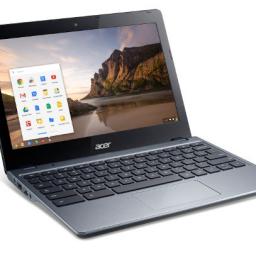
2014 just might be remembered as the
year of the Chromebook . It will be to me at least. I just bought one, and I'm not alone. So have a lot of other people. A whole lot. From the Register:
According to US market-watcher NPD, during the 11 months from January through November 2013, the platform's share of the computing device market had risen to 9.6 per cent from just 0.2 per cent in the same months of the previous year. By contrast, Apple's laptops accounted for a mere 1.8 per cent of the market in 2013, down from 2.6 per cent the year before. Windows-based laptops also declined, though they remain the biggest seller: their combined share fell from 42.9 per cent to 34.1 per cent. Do the sums, and that means Windows laptops took 75 per cent of the US notebook market, Chromebooks 21 per cent and Apple a measly four per cent. Some 6.6 million laptops were shipped through commercial channels, says NPD, of which just under 1.4 million were Chromebooks. Five Chromebooks were sold for every MacBook.
When first released in 2011, they failed to capture the market's attention, as the hardware remained somewhat limited and the software options weren't appealing, but time has been kind to Chromebooks. This year Google and Intel have
partnered to make sure some compelling new hardware was released, including the
ASUS Chromebox desktop , the
21.5" all-in-one by LG , and 20 other models by the likes of HP, ASUS, Acer, Samsung, and Lenovo. CNET is
hugely bullish on Chromebooks; so is
Richi Jennings over at Computerworld.
As for me, I consider myself a power user and I'm not a huge fan of Google's software ecosystem, but I like my new Chromebook. My HP14 is pretty nice hardware, it's running great, I find the user environment hugely useable, and hell - the price was awesome: under $300. It's hard to believe I paid something like $1600 for a PIII laptop and Win98 in 2000.

In 1979, President Jimmy Carter
installed 32 solar panels to the roof of the White House. These panels were mainly used to heat water and were removed in 1981 by President Ronald Reagan during roof repairs. In 2002, George W. Bush added solar panels
to a maintenance shed on the grounds to help heat the pool.
For the last few years, President Barack Obama has been
promising to install photovoltaic solar panels on the White House roof. Although the system was initially planned to produce approximately 19,700 killowatt hours of electricity per year, the
final system was scaled back to a mere 6.3kW system. The new system, however, is finally complete and providing power to the high profile residence.
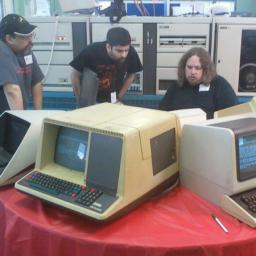
What's the best computer you ever owned? Step aside with your Core Duo, son, and make some room for the gentleman who wants to tell you about his
Commodore 64 . Or
Sinclair ZX . Or
DEC Terminal .
Retro computing is hotter than ever, attracting the interest of a whole new generation who takes interest in the machines of the 60s, 70s, and 80s. You may have missed the
Retro Computing Fair in East Philadelphia last month, but that doesn't mean you're out of luck. Roswell, Georgia is hosting a
Vintage Computing Festival next month, and museums dedicated to classic hardware are springing up everywhere, like
this one in Ramsgate, UK. Most of them are the product of their passionate founders who have opened up their personal collections.
Can't make it anywhere? It's still not too late to
play some classic Commodore 64 games courtesy of a Raspberry Pi and some clever emulation.
That's the thing about bits. Eight of 'em should've been enough for anybody.
 While the initial disclosures by Edward Snowden revealed how US authorities are conducting mass surveillance on the world's communications, further reporting by the Guardian newspaper uncovered that UK intelligence services were just as involved in this global spying apparatus. Faced with the prospect of further public scrutiny and accountability, the UK Government gave the Guardian newspaper an ultimatum: hand over the classified documents or destroy them. The Guardian decided that having the documents destroyed was the best option.
While the initial disclosures by Edward Snowden revealed how US authorities are conducting mass surveillance on the world's communications, further reporting by the Guardian newspaper uncovered that UK intelligence services were just as involved in this global spying apparatus. Faced with the prospect of further public scrutiny and accountability, the UK Government gave the Guardian newspaper an ultimatum: hand over the classified documents or destroy them. The Guardian decided that having the documents destroyed was the best option.






